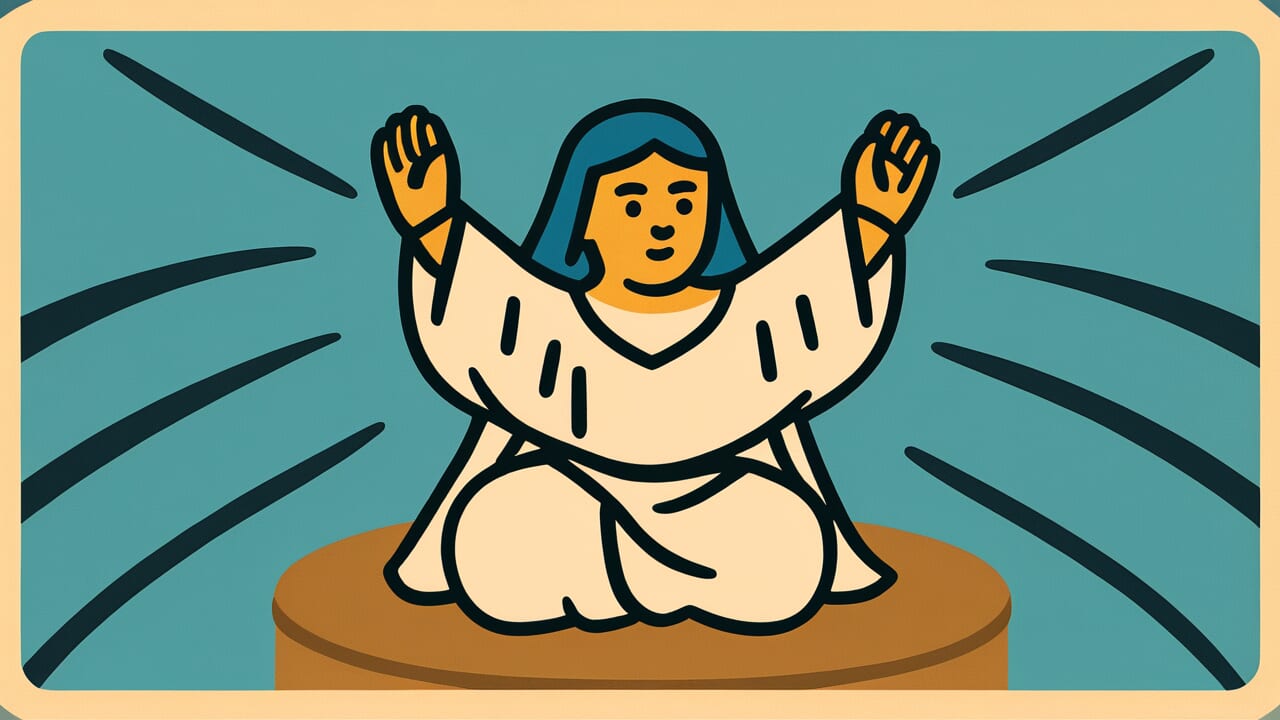How to Read “Gods do not accept disrespect”
Kami wa hirei wo ukezu
Meaning of “Gods do not accept disrespect”
“Gods do not accept disrespect” is a proverb that warns against acting disrespectfully toward sacred things. It applies when visiting shrines and temples, participating in religious ceremonies, or encountering places and matters considered sacred.
The warning is not just about following formal rules. Respect for sacred things shows human humility and reverence. Lacking this respect reflects poorly on a person’s character.
Today, this proverb extends beyond religious settings. It warns against treating traditions, cultural heritage, or deeply held values lightly.
The saying teaches a basic principle for relationships and social life. When something deserves respect, you should approach it with sincerity.
Origin and Etymology
The exact literary origin of this proverb is unclear. However, it clearly connects to Japanese Shinto thought.
The word “hirei” means behavior that violates etiquette and proper manners. Japan has long maintained strict rules for showing respect to gods.
These include purifying yourself with water, bowing before torii gates, and avoiding the center of shrine paths. Each action demonstrates respect for the divine.
“Gods do not accept disrespect” is interesting because it takes the gods’ perspective. It means gods will not accept or acknowledge disrespectful behavior from humans.
This is not just a prohibition. It expresses the dignity of the gods themselves.
In Shinto, gods favor purity and dislike impurity. Disrespect is a form of spiritual impurity.
No matter how formally correct your worship is, it will not reach the gods without genuine respect. This idea lies at the heart of the proverb.
Reverence for sacred things flows through the foundation of Japanese culture. This proverb captures that core spirit in simple words.
Usage Examples
- Seeing young people making noise on shrine grounds, I thought they should be careful because gods do not accept disrespect
- If you participate in a traditional ceremony, you should approach it with the mindset that gods do not accept disrespect
Universal Wisdom
“Gods do not accept disrespect” contains a fundamental truth about the relationship between humans and the sacred. Respect is not something forced on others.
Rather, the dignity of the other demands it.
Throughout history, humans have sensed something beyond themselves. They have felt powers beyond their understanding and things that inspire awe.
Different cultures call this gods, nature, or cosmic principles. But reverence for such existence is a universal human feeling.
This proverb reveals an insight: sacred things have the power to reject disrespect. Superficial courtesy or surface-level respect cannot truly touch the sacred.
This truth applies to human relationships too.
True respect means recognizing another’s dignity, suppressing your own arrogance, and approaching with humility. Without this attitude, no real connection forms, no matter how perfect the formalities.
This proverb asks a profound question about human existence. What is respect? What does it mean to honor something?
Our ancestors used respect for gods to show how humans should be. They taught proper human conduct through divine etiquette.
When AI Hears This
From an information theory perspective, this proverb contains a surprising mathematical truth. If we define gods as “beings with infinite information,” then human disrespect, which is finite information, literally “cannot reach” them.
In Shannon’s information theory, information quantity is the logarithm of the inverse of probability. Rare events carry more information.
But here lies an interesting paradox. For a being that already possesses infinite information, any new information has a relative quantity approaching zero.
For example, tell a being that knows all universal events what you ate today. That information is one divided by infinity, essentially zero.
More important is the “observer effect.” In quantum mechanics, the act of observation affects the target.
But a being with complete information knows the result before observing. Human actions are “already-known information that needs no observation” to gods.
Even if you commit disrespect, it adds nothing new to the god’s information space. It is not rejected but fails to exist as information.
This resembles how sound does not travel in space, no matter how loudly you shout. The medium does not exist, and the fundamental conditions for information transmission are missing.
Lessons for Today
“Gods do not accept disrespect” teaches you the essential meaning of showing respect. Modern society emphasizes efficiency and rationality. Formal things are often dismissed as unimportant.
But this proverb teaches that respect is not mere formality. It is a state of mind that recognizes another’s value.
Consider how you treat your boss or seniors at work, your relationships with family and friends, or your attitude toward values you hold dear. In all these situations, the question is whether you approach them sincerely.
Surface-level courtesy alone cannot build true trust.
Today especially, environments like social media let you express opinions easily. That is why you need caution not to casually criticize or mock what others hold dear.
When you respect something, you also demonstrate your own character. By treating things with respect, you grow as a person.
You gain deeper relationships and richer experiences. This proverb teaches that humility and respect are keys that open the door to a fulfilling life.



Comments